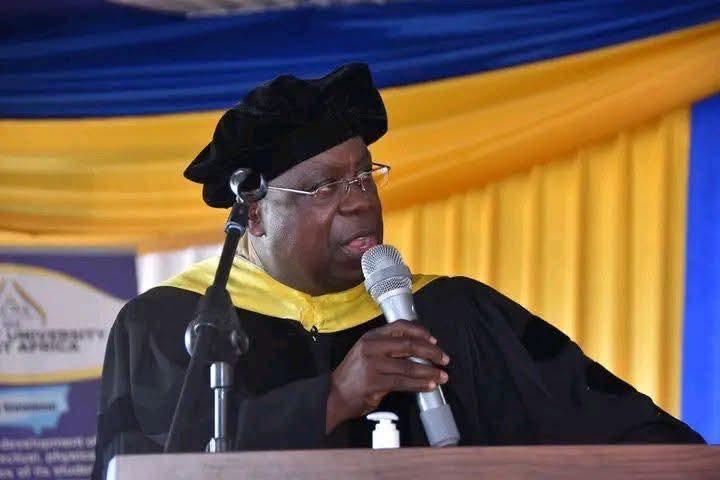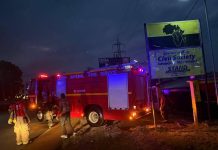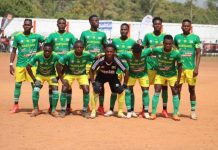Africa-Press – Liberia. The Government of Liberia, through the National Commission on Higher Education (NCHE), has officially shut down 31 institutions across the country for operating without its knowledge and approval.
According to the NCHE, these institutions were offering various academic and professional programs without meeting the required standards or receiving proper accreditation from the Commission.
Making the disclosure Tuesday at MICAT weekly press briefing, NCHE Director General Dr. Edward L. Wonkeryor, revealed that the closure is part of efforts to regulate the higher education sector and protect students from unrecognized institutions.
The affected schools, located mainly in Montserrado and Nimba Counties, include nursing schools, theological colleges, vocational institutes, and unaccredited universities offering certificates, diplomas, and even bachelor’s degrees.
Among the closed institutions are: Gonet Academy located S.D. Cooper Road, Paynesville, Mertu Institute of Health and Laboratory Sciences located 72nd Junction, Paynesville, Christ Laborers School System located Pipeline Road, Paynesville, Liberia Institute of Medical Arts located Jacob’s Town, Paynesville, Faith College of Professional Studies located Jacob’s Town, Paynesville, Great Commission Christian University located Pipeline Road, Paynesville, Monrovia Open Bible College located Old Road, Sinkor, Liberty Theological Seminary located 15th & 16th Streets, Sinkor, The Royal Institute for Secretarial Science located Ashmun and Newport Streets, and Sabegna School of Travel and Tourism located Gurley and Front Streets.
Other institutions affected include Elizabeth Medical Institute of Health Sciences in Mount Barclay, Humanity First Ahmadiyya Vocational College in Sinkor, and the Professional Journalism School of Liberia in Paynesville.
In December 2024, the National Commission on Higher Education (NCHE) announced the launch of a comprehensive National Quality Assurance Inspection Exercise targeting higher education institutions across Liberia.
Since the announcement, the Commission has been conducting assessments to determine whether the services provided by these institutions align with both national and global standards.
The inspection focused on several critical areas including institutional governance and administration, academic programs and curricula, faculty and staff qualifications, facilities and infrastructure, student services and support, research and community engagement, as well as financial management and sustainability.
The inspection team was composed of senior management members of the NCHE along with hired consultants specifically engaged for the exercise.
Following the assessment, the team discovered that many higher education institutions across the country were operating under challenging conditions and lacked several key requirements.
The exercise revealed major deficiencies, including unqualified staff, the absence of essential facilities such as libraries, laboratories, and latrines, among others. It was also discovered that some faculty and administrators held questionable qualifications and credentials.
The inspection further found numerous cases of noncompliance with regulatory requirements, which includes the failure to pay annual registration fees and the unauthorized introduction of new academic programs, which is a violations of NCHE policies.
Presenting the findings to the press on Tuesday, June 24, 2025, NCHE Director General Dr. Edward L. Wonkeryor revealed that the report had been submitted to the Commission’s Board, which has since endorsed it.l, And Based on these findings, necessary measures are being taken to ensure that the country’s higher education sector aligns with the government’s ARREST Agenda.
In view of the inspection outcomes, Dr. Wonkeryor said, “the institutions have been placed into four categories: including Category A: Accredited and chartered institutions with minor challenges, Category B: Accredited or licensed institutions with significant challenges, and Category C: Institutions recommended for suspension or emediate/complete shutdown.”
However, he indicated that the investigation is still ongoing and that they have completed all the undergraduate programs at the University of Liberia.”
Director General Dr. Edward L. Wonkeryor is urging the public, especially students and parents, to verify the accreditation status of any institution before enrollment.
He also warned that operating unaccredited institutions is illegal and undermines the quality of Liberia’s educational system, and that any institution fund violating will face legal penalties.
For More News And Analysis About Liberia Follow Africa-Press






